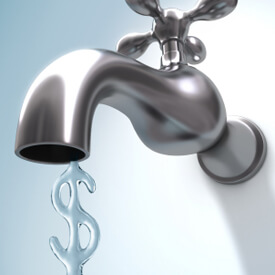The following is a guest post from Briana Myricks who writes at her blog, How’s Married Life?

Do you utilize your US history lessons when it’s not an election year? Besides knowing what H20 means, what elements do you remember from chemistry class?
Part of a valuable high school education should include things you will definitely experience in the real world. One subject that should be taught is personal finance, as that’s something that can be used even before a student graduates. Since personal finance education is such a broad subject, what topics specifically should be taught in high school?
Personal Finance Education Needed In High School
How to balance a checkbook: Even though checkbooks and ledgers are going a little out of style with the use of debit cards and online banking applications, students should know how to balance a checkbook. This essential step is all about knowing how much money you have, especially after making a deposit or a purchase. Once a student gets the hang of balancing a checkbook, they have a better grasp of what money management is.
How to save for an emergency fund: High school students love to live in the moment, so very few of them actually think about something happening in the future. Learning about saving for an emergency fund is very important, as it will give them a head start for saving. They should know what constitutes as an emergency, which is something even some adults have a hard time grasping.

 What is going to happen on the 1st of January 2013 if the fiscal cliff is not resolved by Congress? How is the average taxpayer going to be affected by the fiscal cliff tax changes? The truth of the matter is that the middle class citizens of America are going to see their federal tax bills increase by thousands of dollars. There is also one critical mistake that we are all making that will make the fiscal cliff even worse for every person if we do not change our ways. I’m not talking about the things that are going on in Washington. There is a problem on Main Street in every city with the fiscal cliff as well.
What is going to happen on the 1st of January 2013 if the fiscal cliff is not resolved by Congress? How is the average taxpayer going to be affected by the fiscal cliff tax changes? The truth of the matter is that the middle class citizens of America are going to see their federal tax bills increase by thousands of dollars. There is also one critical mistake that we are all making that will make the fiscal cliff even worse for every person if we do not change our ways. I’m not talking about the things that are going on in Washington. There is a problem on Main Street in every city with the fiscal cliff as well.
